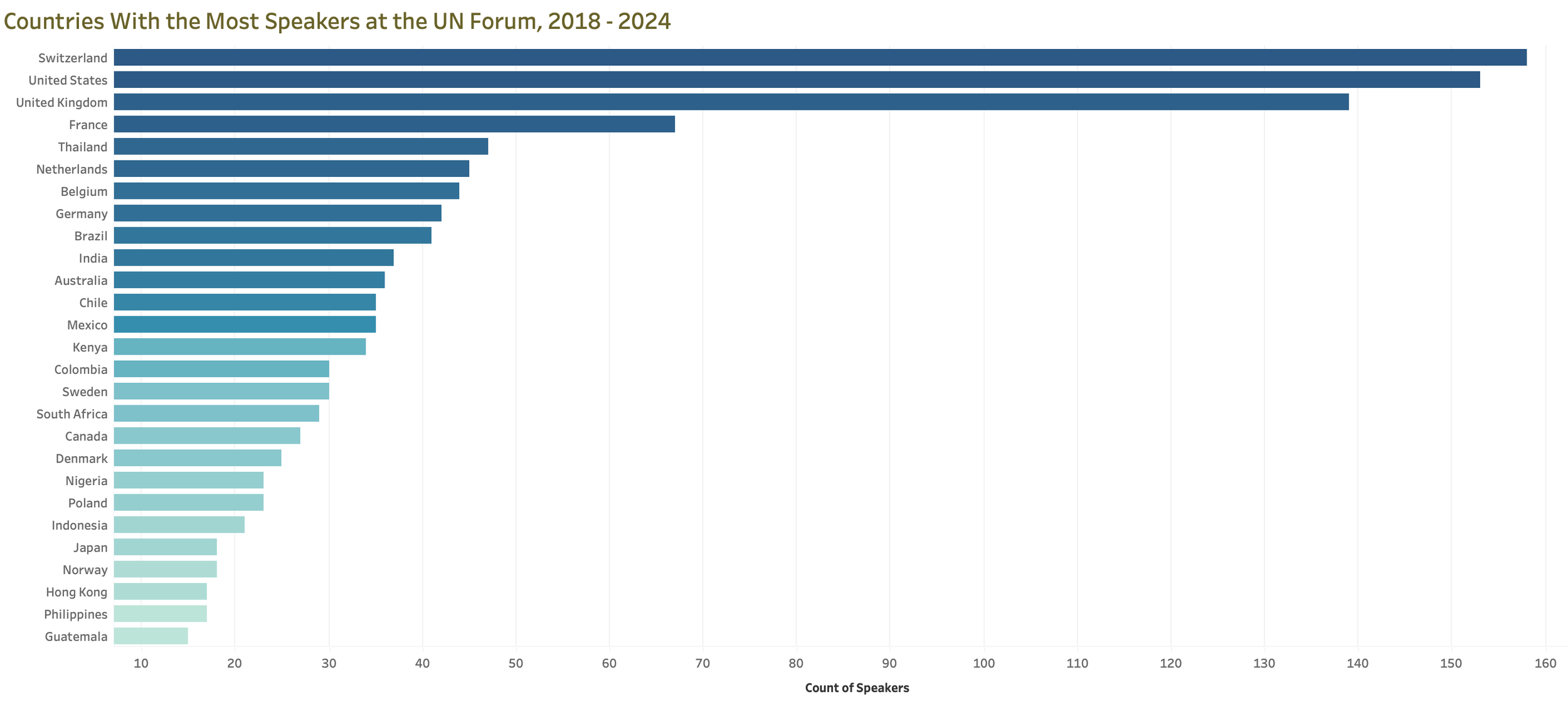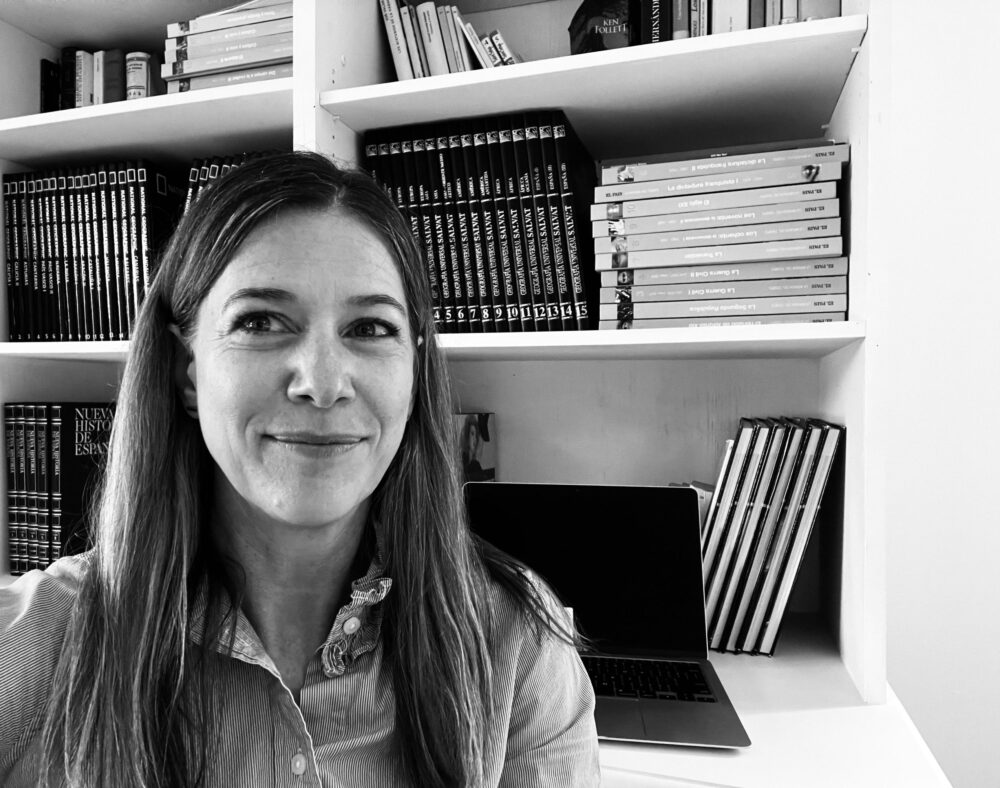As the 13th UN Forum Business and Human Rights comes to a close, once again the data shows that rights holder voices are not centered in that space. The UN Forum is the world’s largest annual gathering on business and human rights. Rights holders are the only group whose human rights are directly at stake, and upholding those rights in the face of corporate activities that threaten them is the aim of the whole business and human rights enterprise. Yet, despite that rights holders’ perspectives are essential to advancing this goal, their voices continue to be sidelined, as the charts below demonstrate.




My 2022 post on the UN Forum speaker breakdown explains the data collection in detail and the underlying data and detailed methodology are available for those who would like to explore it further. To date, Just Ground has collected data on 2,069 speaking opportunities and 355 sessions at the UN Forum from 2018 to 2024.
Why run the numbers? As I’ve explained in previous posts, the Forum consistently fails to be inclusive of rights holders. This matters, because, when rights holders have the floor, it underscores their agency and expertise, contributes to accountability, and models the respect for their perspectives that is required in meaningful stakeholder engagement. When the Forum fails to include them, it further entrenches disparities in access to power and influence.
“Most of the time, the community is not part of the equation. The deal is made between the state and the company, and the rights holders are not aware. . . .The community has to be part of the discussion. When they become aware late, there are serious impacts.”
Edward Porokwa, Pastoralists Indigenous NGO (PINGO)
Many statements by the UN Working Group on Business and Human Rights in support of including rights holder perspectives reflects that they care about these issues. And notably, this year’s Forum was different in that it held spaces for idea exchange and connection with the informal dialogues and networking hubs, which suggests they are trying to make the Forum more relevant and useful for all participants. The Working Group are all volunteers and put on the Forum with the help of a small UN Secretariat staff. Perhaps they have tried to involve rights holders more in the Forum and there are constraints involved that I don’t know about as someone outside the process.
And it should not be up to the Working Group alone. All of the interest groups should play a part in tacking the hurdles that rights holders have to overcome to participate at the Forum. Civil society can support rights holders in submitting proposals on topics and in formats that are meaningful to them. Company and government representatives could agree to pay a registration fee, which could underwrite the cost for rights holders to attain identity documents, visas, plane tickets, accommodation — sometimes even warm clothes — to attend the Forum. All groups could commit to refraining from speaking about their programs, policies and research without including a rights holder perspective on if and how they are effective or relevant. At every opportunity, rights holders should be invited to shape the agenda, because, as they themselves have said, mere representation is not enough.
Consultation may occur, but it does not include people in decision making. It is tokenism. Free Prior and Informed Consent should be in place, not a one-time hearing.
Frederic Wilson, Asia Indigenous Peoples Pact
The need for a concerted effort to center rights holders applies not just to the Forum, but to the business and human rights field as a whole. A refrain at this year’s Forum was that, as states adopt mandatory human rights due diligence, whether implementation amounts to a tick-the-box compliance exercise or drives real change will turn on the quality of stakeholder engagement. For it to be meaningful, rights holders must have the power and capacity to engage and companies must act on what they learn in that exchange. For years, rights holders have called for less talk and more action. Unless more companies and governments start heeding these calls, rights holders will increasingly see the Forum, and the business and human rights space in general, as irrelevant to their struggles.
Photo by Sam Wunna on Unsplash
